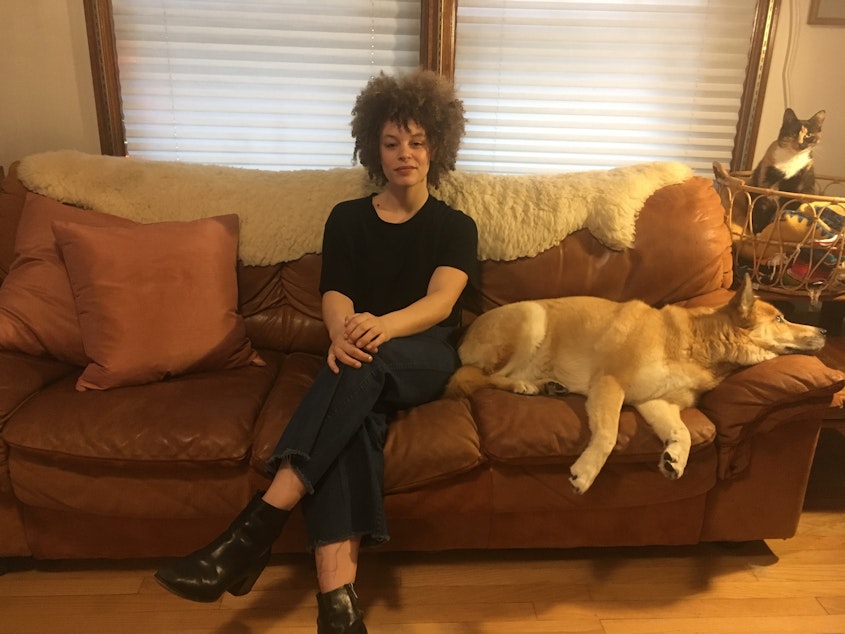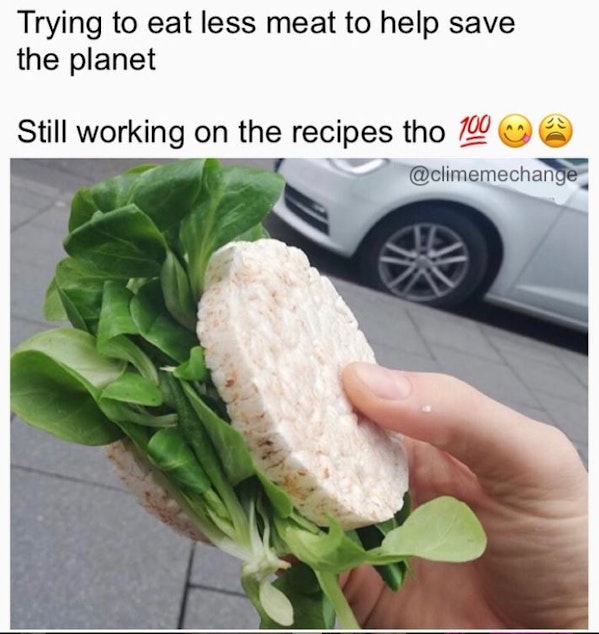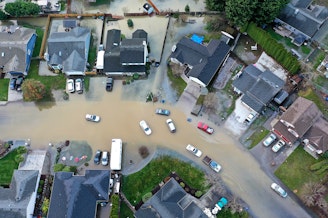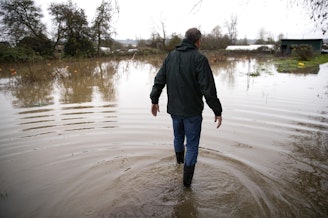Biggest Carbon Loser competitor faces climate anxiety head-on

Three contestants. Two months. One planet. A lot of carbon.
KUOW’s Biggest Carbon Loser series aims to see how deeply three Seattle-area residents can cut their carbon footprints -- from travel, food, energy and more -- while navigating their daily lives.
What will it take our contestants, and our region, to kick the carbon habit and help fend off climate catastrophe?
Many may try, but only one will take the coveted title: The Biggest Carbon Loser.
S
eattle resident Meredith Cooper has anxiety about climate: what the future will bring and what she should do about it.
She said she vacillates between worrying about her consumption and thinking she should drop off the grid and learn survival skills if she ever wants to have children.
“Because they're going to be living in a Mad Max Thunderdome reality,” she said.
Climate anxiety, like elevated levels of heat-trapping carbon dioxide, might be in the air: The University of Washington offers a class on “eco-grief and climate anxiety,” while a North Seattle counselor now offers treatment for climate depression and “pre-traumatic stress.”
Sponsored
“I know a lot of people who acknowledge that possible reality, but also are so fatigued that they just kind of have given up,” Cooper said. “I think a lot of people my age feel that way and they sort of suppress that and just cover it up with, like, memes.”

Cooper joined KUOW’s Biggest Carbon Loser contest to settle an argument with her husband over the importance (or not) of individual actions and for some peace of mind.
“If I know what my typical carbon footprint is and I know the concrete ways which I personally can reduce it, that will hopefully ease that existential dread of living in this time a little bit,” she said.
Three contestants are taking the month of February to slash as much carbon as they can from their carbon footprints. Each contestant tracks their energy consumption and gets advice from a carbon coach. Whoever loses the most carbon, compared to their January emissions, wins.
Sponsored
KUOW stories on their efforts and struggles will highlight where systemic change might be required to enable our region to decarbonize as rapidly as climate scientists say we need to.

“Even if the answer comes back and says, like, there's not a lot I can do personally, I will know that,” she said. “And then I can put the energy and the anxiety that I have about the environment to work somewhere else.”
Cooper lives in the building she manages on Capitol Hill, so her main commute involves walking across her apartment, not burning fossil fuels.
She also tends bar in Belltown, manages an AirBnB and is a handywoman.
Sponsored
She frets about the pollution from what she calls “my old, stinky 1984 Mercedes Benz 4-door diesel vehicle.”
But even holding down multiple jobs, Cooper drives a lot less than the typical American.
Her biggest carbon challenge, she learned after a month of tabulating her consumption of energy, food and stuff, will be eating less red meat.
In January, her activities emitted about 93 pounds of carbon dioxide a day, less than half her competitors’ daily emissions, mostly from the beef that she eats or feeds her dog, Sun Ra.
“Turns out I really don’t drive that much at all,” she said.
Sponsored
Living in Seattle's dense, transit-friendly Capitol Hill neighborhood makes that easy.
On her working-class income, Cooper also doesn’t buy a lot of stuff – almost all of which is made with some amount of fossil fuels – compared to her bigger-spending competitors.
“We're the original environmentalists,” said her carbon coach, Seattle environmental consultant Sean Watts, who said he grew up poor in the Washington, D.C., area. “Like, we didn't have Tupperware. We had to-go containers, and we'd use them over and over and over.”
Watts advised Cooper that beef was “way, way” higher in its carbon impacts than other animal products, which are generally higher-impact than plant-based foods.
Cooper said she was challenging herself to only purchase non-animal derived foods and get them in bulk as much as possible.
Sponsored
“You can only do so much,” Watts told her. “Try to do that and think about how you can effect large-scale policy.”
“Our greatest single impact, when we're talking about individual actions, can be in advocating for proactive and equitable climate policies,” Watts said.
I asked Cooper if she thought people or companies that pollute much more should have more anxiety around their impacts than she does about hers.
“There are people who should be worrying about it more than me, but I also can't help it,” she said. “Personal responsibility is just deeply ingrained in me.”
“And then also, I know that working-class people worldwide, people in poverty and brown people – let's be honest – are going to be the first people that are impacted by the effects of climate change all over the globe. So, you know, I feel like that's where I come from. So that's also our responsibility, if we can do anything to mitigate that.”
One dietary change the coffee drinker has already made: she's given up half-and-half. "I’ve been putting in coconut milk in my coffee, and it is not the same."
"It’s very greasy," she said. "But it’s not beef-derived, and I’m okay with that."






